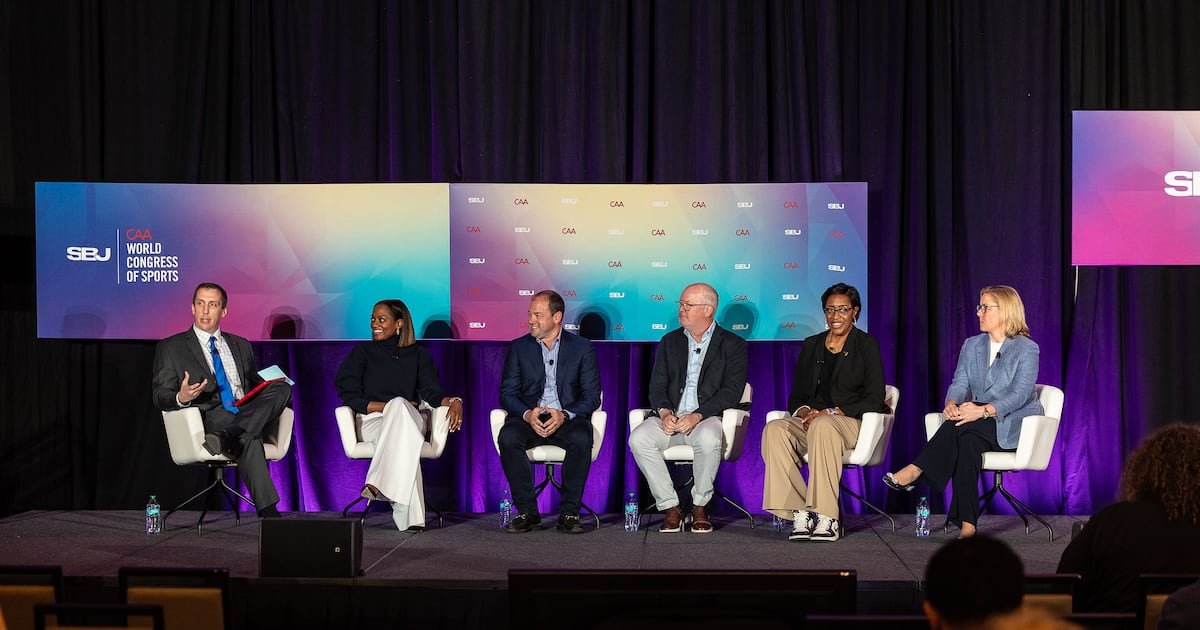Economic challenges and changes to the sports landscape led the discussion to kick off the CAA World Congress of Sports in Nashville on Tuesday.
The diverse panel from across the industry looked at what tariffs, a potential recession, the House settlement and changes to college sports mean for sports business.
“We’ve got a front-row seat to the consumer,” said Jamie Obletz, group president, Delaware North Sportservice and Patina Restaurant Group. “No question, things have slowed. … What gives us hope is that sports is always resilient, it always rebounds, there’s always that fandom that seems to be making business work.”
That uncertainty hasn’t stopped the Sky from expanding its plans for its training facility in Bedford Park. The organization broke ground in the fall and plans to increase the size of the facility by at least 30% to meet the needs of athletes.
“The groundswell of support and investment in the league happened slowly and then all at once,” said Nadia Rawlinson, co-owner and operating chairman of the Sky.
“We feel really, really good that this was the right investment not only for our team, but for the city. … For Chicago to be a top three market, this is one of the things that solidifies our place.”
NBC is looking ahead too, with Super Bowl LX, the Milan Cortina Olympics and the NBA All-Star Game all planned in a two-week window in February 2026. Though advertisers might be more judicious about where they make investments in uncertain economic times, that proposition is hard to miss out on, said Mark Marshall, NBCUniversal’s chairman of global advertising and partnerships.
“If you’re an advertiser and you have to decide where you’re going to place your bets, I think that’s a place you’re going to place your bets is being able to reach 320 million people in one single month,” Marshall said. “We feel good about the demand and the early discussions that we’ve seen to this point.”
Other challenges are coming to the industry with the implementation of the House settlement, something Vanderbilt AD Candice Storey Lee and USOPC CEO Sarah Hirshland have seen firsthand.
“This is certainly a disruptive and transformative period for college athletics,” Storey Lee said. “We’re having the courts decide what our model is going to be, and I think, from a leadership standpoint, that is not what you would prefer. But, we are all guilty of, I think, not leading and not doing things necessary.”
Hirshland pointed out the ties with Team USA, for which more than 75% of summer athletes have collegiate experience.
“This college ecosystem in and of itself, it is the house of cards that could crumble, not only at the elite level but also at the youth level,” she said. “We are shamelessly advocating, lobbying, you name it, for preserving broad-based sport on campuses, not only because it’s good for Team USA, but because it’s good for sport in this country.
“We were in this situation when I joined the organization six years ago, of having Congress impart its will on us, having some mandates around how we allocated resources, and we had to adjust. And it’s painful, but you can do it, and the college system will do this, but it is going to take a bunch of smart people working together.”





